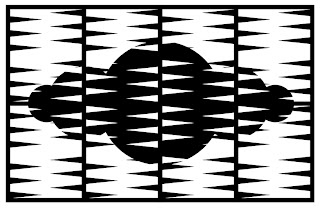Thursday, December 31, 2009
Breviary
breviary \ˈbrē-və-rē\ noun: 1. a book of the prayers, hymns, psalms and readings for the canonical hours, 2. a brief summary
Etymology: Middle English breviarie, from Medieval Latin breviarium, from Latin, summary, from brevis brief, short
A breviary figures in Abbé Faria’s telling of the history of the treasure in The Count of Monte Cristo.
Wednesday, December 30, 2009
Cantankerous
cantankerous \kan-ˈtaŋ-k(ə-)rəs,\ adjective: difficult or irritating to deal with {a cantankerous mule}
Etymology: perhaps irregular from obsolete contack contention
What example could Merriam-Webster use but a mule?
Tuesday, December 29, 2009
Stertor
stertor \ˈstər-tər\ noun: the act or fact of producing a snoring sound; snoring
Etymology: Latin stertere to snore
Boring, coring, flooring, goring, mooring, pouring, roaring, snoring, touring, whoring. Now I feel like a two-cent rhyming dictionary, but it was fun while it lasted.
Monday, December 28, 2009
Stertorous
stertorous \ˈstər-tə-rəs\ adjective: characterized by a harsh snoring or gasping sound
Etymology: Latin word stertere to snore
Would you use this word to describe your car? Your pet? Your repressed thoughts?
Sunday, December 27, 2009
Circumvolution
circumvolution \sər-ˌkəm-və-ˈlü-shən, ˌsər-kəm-vō-ˈlü-shən\ noun: an act or instance of turning around an axis
Etymology: Middle English circumvolucioun, ultimately from Latin circum- + volvere to roll
Circumvolution sounds like a circumlocution; can’t we just say rotation?
Saturday, December 26, 2009
Circumlocution
circumlocution \ˌsər-kəm-lō-ˈkyü-shən\ noun: 1. the use of an unnecessarily large number of words to express an idea, 2. evasion in speech
Etymology: Middle English circumlocucyon, from Latin circum- around, about (from circus circle) + locutio speech (from loqui to speak)
I’m surprised circumlocution hadn’t been featured in Sklonklish before today.
Friday, December 25, 2009
Humbug
humbug \ˈhəm-ˌbəg\ noun: 1. something designed to deceive and mislead, 2. a willfully false, deceptive or insincere person, 3. an attitude or spirit of pretense and deception, 4. nonsense; drivel
Etymology: hum delude, impose, cajole + bug specter, goblin
This etymology really delivers the goods. What more could you want?
Thursday, December 24, 2009
Lumbago
lumbago \ˌləm-ˈbā-(ˌ)gō\ noun: acute or chronic pain (as that caused by muscle strain) in the lower back
Etymology: Latin, from lumbus
Lumbago sounds like the name of dance, although dancing might be the last thing on your mind if you suffered from it.
Wednesday, December 23, 2009
Parlous
parlous \ˈpär-ləs\ adjective: 1. (obsolete) dangerously shrewd or cunning, 2. full of danger or risk; hazardous {the parlous state of the country}
Etymology: Middle English, alteration of perilous
You and your parlous parlor games…
Tuesday, December 22, 2009
Freshet
freshet \ˈfre-shət\ noun: 1. (archaic) stream, 2. a great rise or overflowing of a stream caused by heavy rains or melted snow, 3. a swelling quantity; influx {summer brings a freshet of tourists}
Etymology: Archaic English fresh stream or pool of freshwater + -et small one
A fleshet is an overflowing of meat.
Monday, December 21, 2009
Tumescent
tumescent \tü-ˈme-sənt\ adjective: somewhat swollen {tumescent tissue}
Etymology: Latin tumescent-, tumescens, present participle of tumescere to swell up, inchoative of tumēre to swell
You guessed it — tumor shares an etymology.
Sunday, December 20, 2009
Tumid
tumid \ˈtü-məd\ adjective: 1. marked by swelling; swollen; enlarged {a badly infected tumid leg}, 2. protuberant; bulging {sails tumid in the breeze}, 3. bombastic; turgid
Etymology: Latin tumidus, from tumēre to swell
It’s not the teat — it’s the tumidity.
Saturday, December 19, 2009
Turgid
turgid \ˈtər-jəd\ adjective: 1. being in a state of distension; swollen; tumid {turgid limbs}, 2. excessively embellished in style or language; bombastic; pompous {turgid prose}
Etymology: Latin turgidus, from turgēre to be swollen
Would you rather have turgid limbs or turgid prose?
Friday, December 18, 2009
Thursday, December 17, 2009
Chivy
chivy \ˈchi-vē\ transitive verb: 1. to tease or annoy with persistent petty attacks, 2. to move or obtain by small maneuvers {chivy an olive out of a bottle}
Etymology: English chivy (noun) chase, hunt
Olives hate to be teased or annoyed with persistent petty attacks.
Wednesday, December 16, 2009
Mephitis
mephitis \mə-ˈfī-təs\ noun: 1. a noxious, pestilential or foul exhalation from the earth, 2. stench
mephitic \mə-ˈfi-tik\ adjective: 1. of, relating to, or resembling mephitis, 2. foul-smelling {mephitic vapors}
Etymology: Latin
Mefitis (or Mephitis) was the Roman goddess of volcanic vapors and other noxious fumes from the earth. Mephistopheles (or Mephisto) was the devil to whom Faust sold his soul.
Tuesday, December 15, 2009
Blasé
blasé \blä-ˈzā\ adjective: 1. apathetic to pleasure or excitement as a result of excessive indulgence or enjoyment; world-weary, 2. sophisticated, worldly-wise, 3. unconcerned
Etymology: French
Remember “Café Blasé” T-shirts from the ‘70s?
Monday, December 14, 2009
Ludic
ludic \ˈlü-dik\ adjective: of, relating to, or characterized by play; playful {ludic behavior, a ludic novel}
Etymology: French ludique, from Latin ludus game, play, sport (from ludere to play, mock, tease)
Ludic does not refer to ludes. (Or, um, does it?) Ludic is not related to lewd. (Or, um, is it?)
Sunday, December 13, 2009
Viscus
viscus \ˈvis-kəs\ noun: an internal organ of the body, especially one located in the cavity of the trunk
Etymology: Latin
Viscera is the plural, and visceral describes an experience felt as if originating in the viscera.
Saturday, December 12, 2009
Misology
misology \mə-ˈsä-lə-jē\ noun: a hatred of argument, reasoning or enlightenment
Etymology: Greek misologia, from miso- dislike, hatred + -logia, from logos word, reason
If I had known about misology in college, I would have majored in it.
Friday, December 11, 2009
Aureate
aureate \ˈor-ē-ət\ adjective: 1. of a golden color or brilliance {aureate light}, 2. marked by grandiloquent and rhetorical style {aureate diction}
Etymology: Middle English aureat, from Medieval Latin aureatus decorated with gold, from Latin aureus
Can you compose a sentence in which aureate appears only once but where both definitions make sense?
Thursday, December 10, 2009
Frustum
frustum \ˈfrəs-təm\ noun: a cone or pyramid whose tip has been truncated by a plane parallel to its base
Etymology: Latin frustum piece, bit
This way you can sit on top without hurting yourself.
Wednesday, December 9, 2009
Jocose
jocose \jō-ˈkōs, jə-\ adjective: 1. given to joking; merry, 2. characterized by joking; humorous
Etymology: Latin jocosus, from jocus joke
I hear people use jocular more often than jocose.
Tuesday, December 8, 2009
Parlous
parlous \ˈpär-ləs\ adjective: 1. obsolete: dangerously shrewd or cunning, 2. full of danger or risk; harzardous {the parlous state of the country}
Etymology: Middle English, alteration of perilous
Don’t be fooled by definition #1’s obsolescence — it’s dangerously shrewd or cunning that way.
Monday, December 7, 2009
Argot
argot \ˈär-gət, -(ˌ)gō\ noun: an often more or less secret vocabulary and idiom peculiar to a particular group
Etymology: French
Don’t confuse argot with ergot, a fungal disease of rye and other grasses whose consumption can induce hallucinations (among other nasty symptoms).
Sunday, December 6, 2009
Terraqueous
terraqueous \te-ˈrā-kwē-əs, tə-, -ˈra-\ adjective: consisting of land and water
Etymology: Latin terra land + English aqueous
Is it land? Is it water? It’s terraqua!
Saturday, December 5, 2009
Illiquid
illiquid \(ˌ)i(l)-ˈlik-wəd\ adjective: 1. not being cash or readily convertible into cash {illiquid holdings}, 2. deficient in liquid assets {an illiquid bank}
Etymology: Latin il- not + liquid (from Latin liquēre to be fluid)
So ice is not illiquid water?
Friday, December 4, 2009
Ambisinistrous
ambisinistrous \ˌam-bi-ˈsi-nəs-trəs\ adjective: lacking facility in both hands
Etymology: Latin ambi- both + sinister on the left
I don’t need to point out that ambisinistrous (literally “having two left hands”) is antonymous with ambidextrous (“having two right hands”). Thanks to reader Vicki Peter for suggesting this entry word.
Thursday, December 3, 2009
Snickersnee
snickersnee \ˈsni-kə(r)-ˌsnē\ noun: a large knife
Etymology: obsolete snick or snee to engage in cut-and-thrust fighting, alteration of earlier steake or snye, from Dutch steken of snijden to thrust or cut
What a cute word!
Wednesday, December 2, 2009
Facetiae
facetiae \fə-ˈsē-shē-ˌē, -ˌī\ plural noun: witty or humorous writings or sayings
Etymology: Latin, from plural of facetia jest, from facetus elegant, witty
Sometimes the only difference between facetiae and feces is the point of view of the reader.
Tuesday, December 1, 2009
Eldritch
eldritch \ˈel-drich\ adjective: weird, eerie
Etymology: perhaps from Middle English elfriche fairyland, from Middle English elf + riche kingdom, from Old English rīce
What a weird word for weird.
Monday, November 30, 2009
Cryptolect
cryptolect \ˈkript-ō-ˌlekt\ noun: a secretive language form used by a subculture; an arcane cant
Etymology: crypt- concealed, hidden, secret (from ancient Greek kruptos) + -lect form of speech (from ancient Greek lektos)
I dare you to find a more awesome word.
Sunday, November 29, 2009
Whack
whack \ˈwak\ noun: condition; state
Etymology: unknown (at least to me)
I purposefully left out all of whack’s definitions except the one that pertains to the phrase “out of whack.” Seen in this light it makes sense that something misaligned from its natural condition or state is “out of whack.” (Whack’s more common definition “a punch or strong blow” seems unrelated to “a condition or state,” but who knows? Stranger things have turned out to be true. If you can shed some light on this mess, please post a comment.
Saturday, November 28, 2009
Saccade
saccade \sa-ˈkäd\ noun: a small, rapid, jerky, voluntary movement of the eye, especially as it jumps from fixation on one point to another (as in reading)
Etymology: French, twitch, jerk, from Middle French, from saquer to pull, draw
Microsaccades resemble involuntary, miniature saccades. “Their implementation in the oculomotor system is unknown,” according to M. Rolfs, R. Kliegl & R. Engbert in “Toward a model of microsaccade generation: The case of microsaccadic inhibition,” published in Journal of Vision (2008).
Friday, November 27, 2009
Texel
texel \ˈtek-səl\ noun: in computer graphics, an image representing the smallest unit of a texture, containing no repeated sections and that may be repeated to tile a region of the display
Etymology: tex (from texture) + el (from element)
The naming of yesterday’s and today’s terms were patterned after the naming of the word pixel.
Thursday, November 26, 2009
Voxel
voxel \ˈvok-səl\ noun: the three-dimensional analogue of a pixel
Etymology: vo (from volumetric) + xel (from pixel)
Voxel looks as if its etymology could be vox (Latin voice) + el (from element), which would make a voxel the audio equivalent of a pixel. (This, of course, is not the case.)
Wednesday, November 25, 2009
Pixel
pixel \ˈpik-səl\ noun: a single point in a digital raster image, often represented as a square in a two-dimensional grid
Etymology: pix (plural of pic) + el (from element)
The etymology for pixel may be unsurprising, but I still found it interesting since I’d never really paused to consider the word’s origin before.
Tuesday, November 24, 2009
Collimate
collimate \ˈkä-lə-ˌmāt\ transitive verb: to make (as light rays) parallel
Etymology: Latin collimatus, past participle of collimare, manuscript variant of collineare to make straight, from com- + linea line
Sometimes a word you’ve never heard before sounds perfectly familiar, as if you two were waiting to be friends your entire lives.
Monday, November 23, 2009
Imbroglio
imbroglio \im-ˈbrōl-(ˌ)yō\ noun: 1. a confused mass, 2 a. an intricate or complicated situation (as in a drama or novel), b. an acutely painful or embarrassing misunderstanding, c. a violently confused or bitterly complicated altercation; embroilment, d. scandal {survived the political imbroglio}
Etymology: Italian, from imbrogliare to entangle, from Middle French embrouiller, from en- + brouiller to jumble
Imbroglio flows so lyrically for such nasty meanings.
Sunday, November 22, 2009
Sobriquet
sobriquet \ˈsō-bri-ˌkā, -ˌket\ noun: a descriptive name or epithet; nickname
Etymology: French
I have nothing against loan words, but why does the English language need sobriquet? What does it do that nickname or epithet doesn’t?
Saturday, November 21, 2009
Volupté
volupté \voh-luep-tā\ noun: pleasure; sensuality
Etymology: French
Why do I get the feeling volupté is more pleasureable than pleasure, more sensual than sensuality?
Friday, November 20, 2009
Chorography
chorography \kə-ˈrä-grə-fē\ noun: 1. the art of describing or mapping a region or district, 2. a description or map of a region, 3. the physical conformation and features of such a region
Etymology: Latin chorographia, from Greek chōrographia, from chōros place + -graphia -graphy
I hope you didn’t mistake this word for choreography at first blush.
Thursday, November 19, 2009
Perseveration
perseveration \pər-ˌse-və-ˈrā-shən\ noun: pathological repetition of a word, phrase, gesture or act despite the absence or cessation of a stimulus, often associated with brain damage or schizophrenia
Etymology: Latin perseveration-, perseveratio, from perseverare, from per- through + severus severe
We all know the word perseverance; it stems from the same root as perseveration, but it is a different kind of steadfastness, one that is looked upon as a favorable trait.
Wednesday, November 18, 2009
Laurasia
Laurasia \loh-ˈrā-zhə\ geographical name: one of two supercontinents resulting from the breakup of Pangaea, comprising what is now North America and Eurasia
Etymology: laur- (from Laurentia) + -asia (from Eurasia)
Laurentia is the name given to the geologically stable continental crust that makes up North America. It derives its name ultimately from the St. Lawrence River.
Tuesday, November 17, 2009
Gondwana
Gondwana \gän-ˈdwä-nə\ geographical name: one of two supercontinents resulting from the breakup of Pangaea, comprising what is now South America, Africa, India, Australia and Antarctica
Etymology: from the Gondwana region of central northern India, where some of the earliest rock formations of the supercontinent were first investigated
Gondwana was formerly known as Gondwanaland.
Monday, November 16, 2009
Pangaea
Pangaea \pan-ˈjē-ə\ geographical name: hypothetical land area believed to have once connected nearly all of the earth’s landmasses together
Etymolgy: Greek pan- all + Gaia ancient Greek earth goddess
Boats would have been less useful back in the day.
Sunday, November 15, 2009
Panacea
panacea \ˌpa-nə-ˈsē-ə\ noun: a remedy for all ills or difficulties; cure-all
Etymology: Latin, from Greek panakeia, from panakēs all-healing, from pan- all + akos remedy
This word always makes me think of pancakes.
Saturday, November 14, 2009
Intonarumore
intonarumore \ēn-ˌtōn-ä-rü-ˈmohr-ā\ noun: one of a family of mechanical noise-generating musical instruments invented by Italian Futurist Luigi Russolo
plural intonarumori
Etymology: Italian intonare to intone + rumore noise
Composer/musicologist Luciano Chessa recreated sixteen of Russolo's intonarumori and presented them at a concert this past Thursday at New York City’s Town Hall concert venue. It was a maddening, exilarating performance. If you want to learn more about these mesmerizing instruments, here’s Wikipedia’s article on the intonarumori.
Friday, November 13, 2009
Gemütlichkeit
Gemütlichkeit /gəˈmyːtlɪçkaɪ̯t/ noun: the state or fact of being gemütlich; twee cosiness
Etymology: German Gemütlichkeit cosiness
In case you can’t infer gemütlich’s definition from above, Wiktionary calls it “comfortable, middle-class, cosy, twee.”
Thursday, November 12, 2009
Bedizen
bedizen \bi-ˈdī-zən\ transitive verb: to dress or adorn gaudily
Etymology: English be- + dizen, from Middle Dutch disen, from Low German dise
The noun form is bedizenment.
Subscribe to:
Posts (Atom)





















































